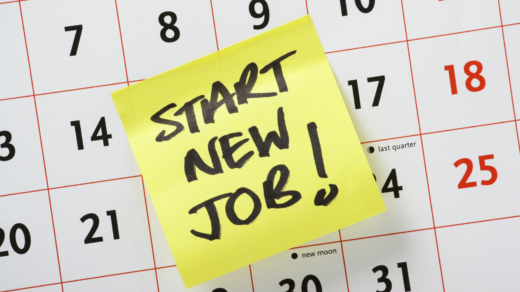Navigating the job market can be daunting, especially for those stepping into their first job interview. Understanding the expectations and preparing adequately can significantly enhance the chances of success. By focusing on key elements such as research, communication, and presentation, candidates can approach their interviews with confidence.
Interviewers often assess not only qualifications but also attitude and fit within the company culture. It’s essential for candidates to articulate their skills and experiences clearly while demonstrating enthusiasm for the role. Practising common interview questions and preparing questions for the interviewer can make a strong impression.
Preparation extends beyond just answering questions. Candidates should also pay attention to their attire and punctuality. Dressing appropriately and arriving on time reflects professionalism and respect for the interviewer’s time. With a thoughtful approach, candidates can transform their nerves into a positive experience.
Understanding the Interview Process
The interview process can be complex, consisting of various types and stages. Grasping these elements can significantly enhance a candidate’s chances of success.
Types of Job Interviews
There are several formats for job interviews, each serving different purposes. Common types include:
- In-person Interviews: These allow for personal interaction and non-verbal communication.
- Phone Interviews: Often used for initial screenings, they require strong verbal communication skills.
- Video Interviews: Becoming more prevalent, these combine the convenience of remote access with visual interaction.
- Group Interviews: Involves multiple candidates being assessed at once, emphasising teamwork and interaction.
- Panel Interviews: Conducted by a group of interviewers, testing how well a candidate responds to various questions.
Each format has its unique set of expectations, making preparation essential.
Stages in the Hiring Process
The hiring process typically unfolds in distinct stages:
- Application Submission: Candidates submit resumes and cover letters, often tailored to the job description.
- Pre-screening: Recruiters may conduct phone screenings to filter applicants based on qualifications and fit.
- Interviews: Multiple rounds are common, with candidates meeting different team members to assess compatibility.
- Assessment Tests: These may include skills or personality tests to evaluate suitability for the role.
- Reference Checks: Employers contact former supervisors or colleagues to validate the candidate’s work history.
Following these stages is crucial for effective navigation through the hiring process. Candidates should prepare accordingly at each step.
Preparing for the Interview
Preparation is essential for a successful job interview. This involves understanding the company, thoroughly reviewing the job description, and practising with mock interviews. Each of these elements significantly contributes to building confidence and readiness.
Research the Company
Knowing the company is crucial before stepping into the interview room. Candidates should explore the organisation’s history, mission statement, and values. Websites, social media, and news articles are excellent sources for this information.
Understanding the company’s culture can also provide insights into what they value in employees. He or she should pay particular attention to recent developments, projects, or awards that the company has received. This knowledge allows candidates to tie their answers back to the organisation’s goals during the interview.
Review the Job Description
A detailed review of the job description is vital. Candidates must identify key responsibilities and required skills. Highlighting relevant experience that matches these requirements will not only prepare answers but also demonstrate suitability for the position.
Creating a list of keywords from the job description can assist in formulating responses. This strategy helps in framing answers that relate personal experiences directly to the expectations of the role. By doing this, candidates establish a clear alignment with the job’s demands.
Practise with Mock Interviews
Engaging in mock interviews is an effective way to prepare. This practice can help alleviate nerves and improve articulation during the actual interview. Candidates can ask a friend or mentor to conduct a simulated interview using common questions.
Feedback from mock sessions is invaluable. It offers an opportunity to make improvements in responses and body language. The more candidates practise, the more comfortable they become with answering questions succinctly and confidently.
Effective Interview Techniques
Implementing effective interview techniques can significantly enhance a candidate’s chances of success. Key strategies involve structured response methods, showcasing relevant skills, and preparing for frequently asked questions.
Utilising the STAR Method
The STAR method is an effective way to structure responses to behavioural interview questions. It focuses on four components: Situation, Task, Action, and Result.
- Situation: Describe the context within which you performed a task or faced a challenge.
- Task: Explain your responsibilities in that situation.
- Action: Detail the specific actions you took to address the task.
- Result: Share the outcomes of your actions, emphasising positive results.
Using this framework helps candidates articulate their experiences clearly and provides interviewers with structured insights into their problem-solving abilities and teamwork skills.
Demonstrating Your Soft Skills
Soft skills are equally as important as technical skills in many roles. Employers often look for qualities like teamwork, communication, and adaptability.
- Teamwork: Show how you collaborated with colleagues on projects.
- Problem-Solving: Present examples where you identified issues and implemented solutions.
- Communication: Highlight instances demonstrating your ability to convey information effectively.
Candidates should weave these skills into their responses, showcasing them through real-life examples. This approach reinforces their capability to integrate into a work environment.
Formulating Responses to Common Questions
Preparation for common interview questions enhances confidence. Typical queries include:
- “Tell me about yourself.”: Focus on summarising your background relevant to the role.
- “What are your strengths and weaknesses?”: Choose strengths that align with the job. For weaknesses, present them as areas for improvement and what steps are being taken.
Practising these responses out loud aids in clarity and reduces anxiety during the interview. Customising answers to reflect personal experiences and aspirations will make them more impactful for the interviewer.
During the Interview
During an interview, it’s crucial to display confidence and professionalism while balancing honesty with strategic communication. The following insights cover essential aspects to consider for making a strong impression.
Portraying Confidence and Professionalism
Confidence can significantly influence how an interviewer perceives a candidate. Effective body language plays a vital role. Maintaining eye contact, offering a firm handshake, and sitting up straight show engagement and self-assurance.
A polished appearance also contributes to professionalism. Dressing appropriately for the industry demonstrates respect for the opportunity. Speaking clearly and at a measured pace further enhances the impression of confidence.
Candidates should prepare responses to common questions. Practising these answers can reduce anxiety and increase comfort during the interview. This preparation allows for a more natural delivery and showcases communication skills.
Balancing Honesty and Strategy
Honesty is essential, but candidates should also present their experiences strategically. When discussing weaknesses, it’s beneficial to frame them constructively. For instance, instead of stating a lack of experience in a specific area, they could mention a willingness to learn and adapt.
Responding to tricky questions requires thoughtfulness. It’s important to provide genuine answers while steering the conversation toward strengths. Candidates should highlight relevant skills and accomplishments, ensuring they stay focused on their suitability for the role.
Additionally, using examples from past experiences can reinforce claims. This approach validates honesty and demonstrates the practical application of skills. Balancing these elements can lead to a more favourable assessment by potential employers.




